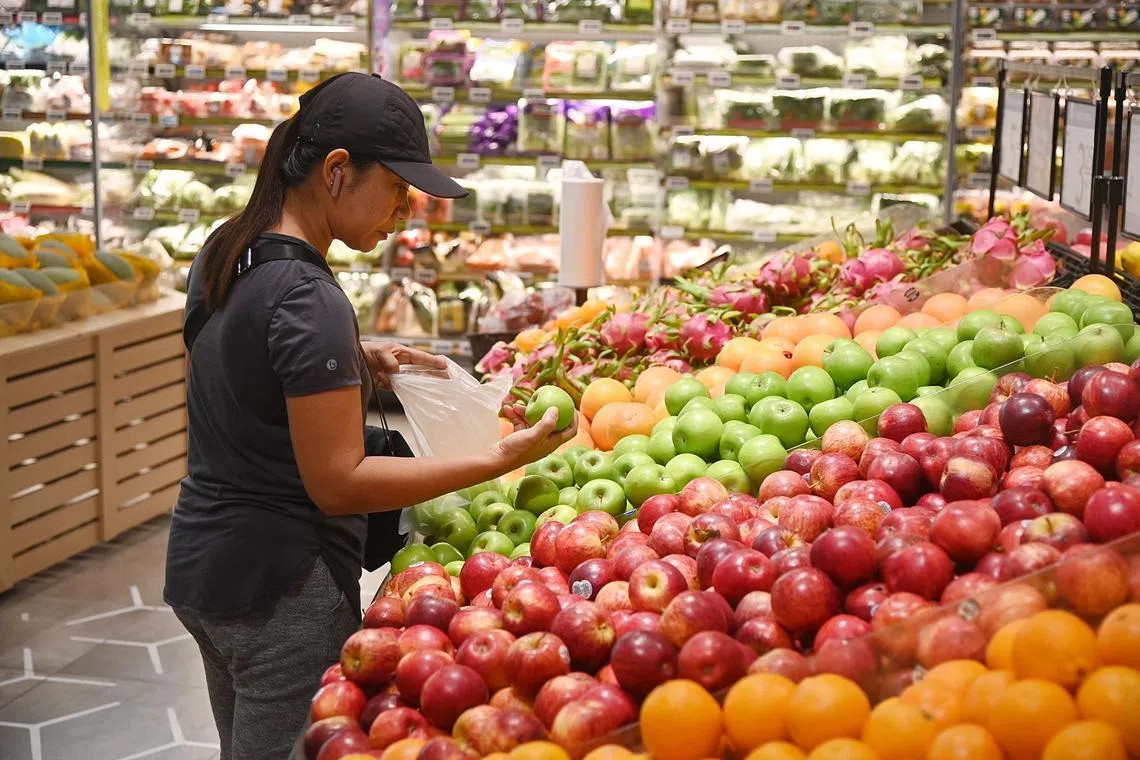WP wants to fund spending while avoiding moves like GST by taking more from reserves: Chee Hong Tat
Sign up now: Get ST's newsletters delivered to your inbox

Any decision by the Government to increase taxes, especially a broad-based tax like the GST, is only taken after it has carefully explored and considered all options, said Mr Chee Hong Tat.
ST PHOTO: DESMOND WEE
SINGAPORE - While the People’s Action Party Government has always been prudent and pragmatic in its fiscal approach, the Workers’ Party (WP) has consistently opposed the goods and services tax (GST), from its adoption to each increase, Senior Minister of State for Finance and Transport Chee Hong Tat said on Tuesday.
WP believes that higher government expenditures can be met without unpopular moves such as raising the GST by taking more from the reserves, never mind that this will leave future generations of Singaporeans with less money and a weakened financial position, he said.
“There isn’t a spending proposal that WP didn’t like – only asking for more of it; and there isn’t a funding proposal that WP didn’t oppose – only proposing we raid the reserves instead,” Mr Chee wrote on Petir.sg, the PAP’s sociopolitical website.
Mr Chee’s article, which he shared on Facebook, comes a fortnight after Parliament debated and passed a Bill
The debate showed the fundamental differences in political values and attitudes towards fiscal discipline between PAP and WP, he said.
“It is important to consider these differences especially since WP has grown in strength over the years and is now positioning itself as the Government in waiting,” said Mr Chee.
During the debate on Nov 7, WP MPs had argued and voted against the GST hike,
In place of a hike, they proposed raising the proportion of the Net Investment Returns Contribution (NIRC) that can be spent in the Budget each year to 60 per cent, up from the current 50 per cent. They also suggested using proceeds from land sales to fund current expenditure.
But both proposals mean using more from the reserves and leaving less behind for future generations, Mr Chee said.
“If earlier generations of Singaporeans had done what WP proposed and spent more of our reserves and investment returns in previous years, we will have less reserves and NIRC today,” he added.
Had earlier Governments embarked on this path, Singapore would be facing an even greater GST increase to 11 per cent or 13 per cent to fund its current and future spending needs, he said.
He said the PAP government prefers to maintain the 50:50 ratio between spending investment returns from NIRC and saving the rest, as this strikes a fair and necessary balance between the needs of today and tomorrow, and current and future generations.
“For PAP, a vote for the GST increase is to accept our moral and social responsibility of caring for our ageing population today, without taking away resources from or borrowing against future generations,” said Mr Chee.
This must be done at a time when Singapore has the ability to do so even if conditions are less than ideal, accepting that there is no ideal time to raise taxes, added Mr Chee.
As for WP, Mr Chee said it should be providing policy alternatives that are workable in practice and cater not only for immediate needs but also to needs in 10, 20 or even 50 years’ time.
“And they must explain clearly to Singaporeans the details of their proposals and the associated trade-offs,” he said.
Mr Chee said WP spoke of political courage in its party newsletter even though it opposed the GST hike, an irony that was not lost on fellow PAP MP Murali Pillai.
In his speech during the debate,
Mr Chee also reiterated the Government’s point that any decision to increase taxes, especially a broad-based tax like the GST, is taken only after it has carefully explored and considered all options.
He said the Assurance Package was enhanced to $8 billion in November to ensure the Government keeps to its commitment to offset additional GST expenses for most Singaporean households for five years, and a decade for lower-income households.
The Ministry of Finance had also announced more than $3.5 billion of support measures to help Singaporeans – especially lower- and middle-income families and retirees – cope with higher inflation in 2022, he added.
“Our approach reflects PAP’s values to build a fair and just society, supported by a fair and progressive tax and benefits system,” said Mr Chee.



